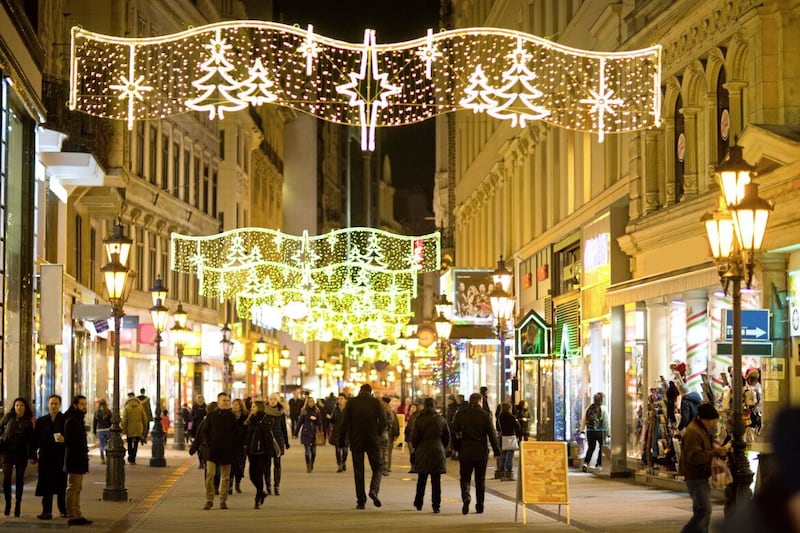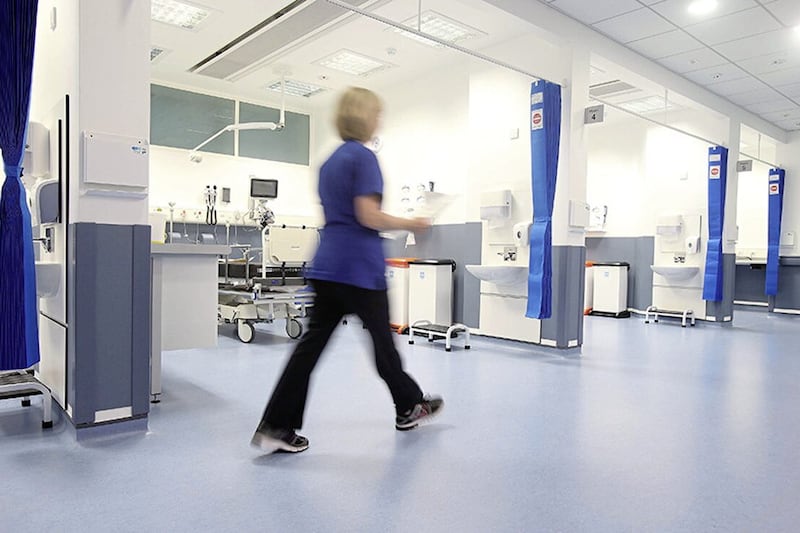ECONOMY watchers were reaching for the popcorn over the past week as estimates of 50 per cent growth in our economic fortunes over the next decade were cited as the potential prize from the Windsor Framework.
Understandably, such an upbeat prediction was given significant airtime, which sparked reaction and challenge by some in the academic community.
I’m not weighing in on the models used, nor who is right. As the old economist joke goes, if we were all laid end-to-end we would never reach a conclusion.
The premise of the analysis was that the economy has changed dramatically since the Good Friday Agreement in 1998, and it could change dramatically again off the back of the Windsor Framework.
I think that this is a sound premise and it got me thinking about one sector in particular, tourism and whether we truly appreciate its true value to the Northern Ireland economy.
In 1968, there were 1.14 million overnight trips made by visitors here. This plummeted dramatically over the next couple of years, reaching a low point in 1976 of 432,000. A recovery started from here which got us back to 1968 levels by 1990.
The sector has largely continued to grow, apart from during major international events such as the great recession. By 1998, close to 1.5 million visitors were arriving. The pace of growth in our tourism figures has gathered since 2010, going from 1.8 million to 3 million over the course of the decade.
Major events such as the centenary of the Titanic (and the opening of the Titanic Belfast visitor centre), MTV Europe Music Awards, the Giro D’Italia and The Open golf to name a few really put a spring in the step of the tourism sector.
Of course it is important to note that getting here was made much easier through support to increase air routes and the era of cheap flights.
Buoyed by the optimistic outlook that emerged in tourism, hoteliers have invested over £1 billion over the last two decades. The result is a vibrant, diverse industry which supports over 15,000 jobs with a direct payroll of around £250m in 2023.
That said, I contest that we aren’t valuing the sector accurately, and if we were, the challenges the industry faces would be treated as a higher priority by policy makers who seem to prefer the lure of what we call ‘high value added’ sectors.
Current estimates suggest the tourism industry is worth about £1.2 billion. However, back in 2007 a report called ‘Tourism in the Northern Ireland Economy’ took a forensic approach to measuring the impact of tourism across the whole economy. The approach, known as Tourism Satellite Accounts, was counting a total tourism spend of £1.3 billion.
So, that has got me thinking – despite some knowledge of the current size of the tourism industry, there must be more to it than we think.
My ambition is to complete a full re-run of the work that was done in 2007. For now, my economics team has been able to establish a good approximation of the 2007 approach using current data (annoyingly ‘current’ means 2019 with tourism data).
On this basis, we believe total expenditure related to tourism in Northern Ireland could be £3.5 billion, more than double what it is being counted as.
As we are all painfully aware, the trading environment for tourism has been exceptionally difficult over the past couple of years. We don’t have the full picture of that due to the lag in data but what we do know is that the hotel sector returned to full trading in March 2022 and occupancy levels, which fell to 33 per cent in 2020 were back up to 71.5 per cent - rates that are slightly ahead of 2019 levels.
This should be a good news story for the sector. But the energy crisis, wider inflation and ongoing staff shortages have made trading very challenging. It would be a mistake to think the industry has stagnated over the past three years.
The NI Hotels Federation’s latest Hotel Market Report notes that there have been several high profile sales and, even with limited openings predicted for 2023, the sector will invest in the region of £100 million over the course of the year between construction, sales, and refurbishments.
Despite the challenging trading environment, tourism and hospitality acts as one of our key economic drivers. It might even be considerably more of an economic driver than we thought.
:: Andrew Webb is chief economist at Grant Thornton






